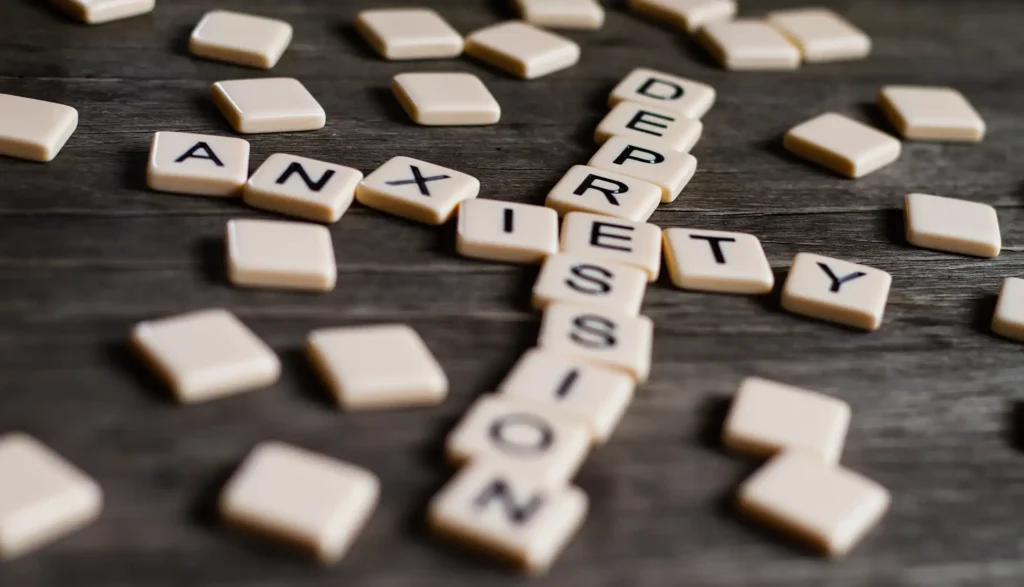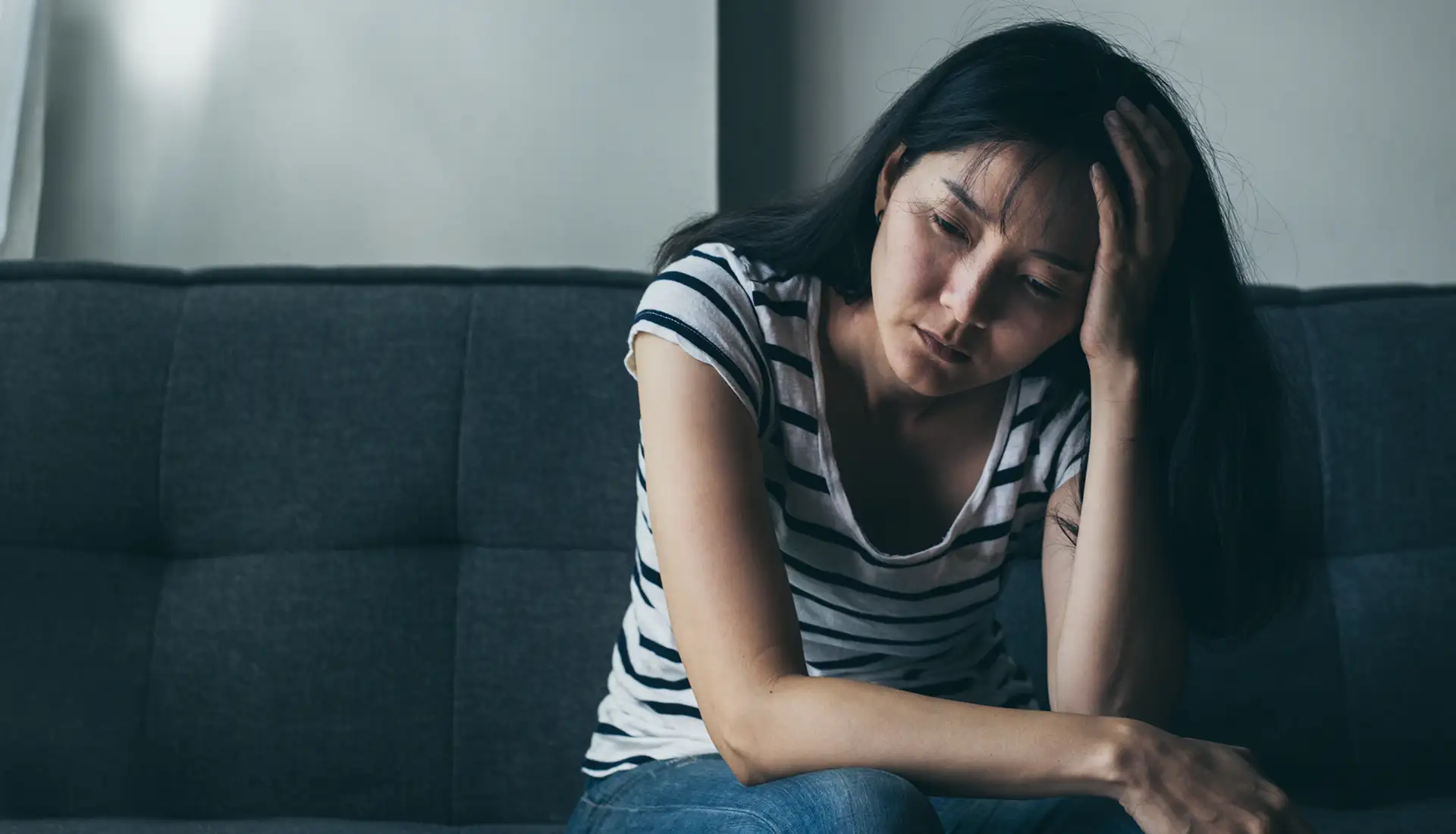Curious how does therapy help anxiety? Therapy tackles the root causes of anxiety and teaches coping skills to manage symptoms. This article will explain how therapy works, types of therapy, and the benefits you can expect.
Key Takeaways
- Anxiety disorders can severely impact daily functioning, with various types including generalized anxiety disorder, panic disorder, and social anxiety disorder characterized by persistent fear and physical symptoms.
- Therapy is crucial for managing anxiety, helping individuals identify root causes, develop coping strategies, and fostering resilience in a supportive environment.
- Common therapeutic approaches include Cognitive Behavioral Therapy (CBT), Exposure Therapy, and Psychodynamic Therapy, each offering unique methods for effectively treating anxiety disorders.
Understanding Anxiety Disorders
Anxiety disorders encompass various mental health conditions characterized by persistent and overwhelming feelings of anxiety and fear, including generalized anxiety disorder and mental disorders. These disorders can severely impair the ability to function at work, school, and in social situations, making everyday activities seem insurmountable. Anxiety symptoms often persist and can worsen over time, leading to chronic stress and a decline in overall quality of life.
Panic disorder, for instance, involves sudden episodes of intense fear, often accompanied by physical symptoms such as chest pain and sweating. Social anxiety disorder, on the other hand, is marked by significant fear and self-consciousness in social situations due to the fear of being judged. Separation anxiety disorder can also affect adults, causing excessive fear when a close person is not present.
Common symptoms of anxiety disorders include:
- Restlessness
- Fatigue
- Difficulty concentrating
- Physical reactions like trembling, along with psychological and physical symptoms.
These symptoms indicate an anxiety disorder when they interfere with everyday life. Understanding the different types of anxiety disorders and their symptoms, including obsessive compulsive disorder, is the first step towards effective treatment and management.
The Role of Therapy in Treating Anxiety Disorders
Therapy significantly aids in treating anxiety disorders by helping individuals comprehend their anxiety, its root causes, and how past experiences or traumas contribute to their current state. Therapy for anxiety aims to control anxiety, reduce symptoms, and teach coping skills. Therapists customize treatment plans to meet each individual’s specific needs, ensuring a personalized approach that addresses unique circumstances.
A key benefit of therapy is providing a safe space to explore and confront fears, crucial for managing anxiety. Avoidance behaviors can worsen anxiety, making therapeutic confrontation of fears essential. Therapy sessions often involve a collaborative process where the therapist and patient work together to identify concerns and develop coping skills. This collaborative approach builds resilience and enhances feelings of control over anxiety.
Therapy for anxiety relieves symptoms while addressing underlying causes, promoting long-term improvement. Seeking professional help is a vital step towards recovery and well-being for individuals facing anxiety. Therapy equips individuals with tools and strategies to manage anxiety, empowering them to lead healthier, more balanced lives.
Types of Therapy for Anxiety
Various therapeutic approaches are available to treat anxiety disorders, each with its unique methods and benefits. The most common types include Cognitive Behavioral Therapy (CBT), Exposure Therapy, and Psychodynamic Therapy. These therapies aim to identify the source of anxiety, understand triggers, and change reactions, providing a comprehensive approach to managing anxiety.
Cognitive Behavioral Therapy (CBT)
Cognitive Behavioral Therapy (CBT) is highly effective in treating anxiety disorders and is the most widely used therapy for this condition. CBT combines cognitive therapy and behavior therapy to help individuals manage anxiety by changing their thought patterns and behaviors. CBT is based on the idea that our thoughts influence our emotions. It emphasizes that external events do not directly determine how we feel. Changing negative thoughts can alter feelings and, consequently, behaviors.
CBT aims to identify and correct negative thoughts and beliefs that contribute to anxiety. Cognitive therapy in CBT helps individuals identify and replace negative thoughts with more realistic ones. A primary technique used in CBT is thought challenging, where negative thinking patterns are identified and replaced with more realistic thoughts. This process helps to reduce anxiety symptoms by changing the way individuals perceive and react to anxiety-provoking situations.
The behavioral component of CBT encourages engaging in anxiety-provoking activities to reduce problematic behaviors. This practice desensitizes individuals to their fears and builds confidence in managing anxiety.
CBT often involves practicing these techniques on your own at home to reinforce what is learned during therapy sessions. Over time, this approach can lead to significant improvements in managing anxiety.
Exposure Therapy
Exposure therapy reduces anxiety by confronting fears in a controlled manner. The key components of systematic desensitization include gradual exposure, challenging fears, and building confidence. This therapy involves a step-by-step approach that begins with mildly threatening situations and gradually progresses to more challenging ones. Facing fears progressively, exposure therapy reduces a person’s anxiety over time.
Techniques used in exposure therapy include in vivo exposure, imaginal exposure, and virtual reality exposure. This therapy can be particularly effective in treating social anxiety, specific phobias, and posttraumatic stress disorder (PTSD). Confronting fears in a safe context allows individuals to overcome anxiety and improve their overall quality of life.
Psychodynamic Therapy
Psychodynamic therapy seeks to explore past conflicts and childhood issues that may contribute to adult anxiety. This therapy investigates childhood experiences to reveal their impact on current anxiety. Gaining insight into these past experiences helps individuals understand the root causes of their anxiety and work towards resolving them.
Psychodynamic therapy is as effective as CBT for treating anxiety disorders. Both therapies aim to provide a deeper understanding of anxiety, helping individuals to manage their symptoms more effectively. Psychodynamic therapy offers a unique approach that complements other therapeutic methods, providing a comprehensive treatment plan for anxiety.
Benefits of Therapy for Anxiety
Therapy offers numerous benefits for individuals struggling with anxiety. One of the primary advantages is the development of healthier stress management techniques and resilience. Confronting fears rather than avoiding them helps individuals build confidence and reduce anxiety symptoms. This process leads to long-term improvement and enhanced quality of life.
A self-care routine significantly alleviates symptoms of anxiety and depression. Physical activity, such as regular exercise, not only helps manage anxiety but also boosts overall mental resilience. A balanced diet rich in fruits, vegetables, and whole grains can positively influence mood and reduce anxiety.
Changing your mindset through therapy reduces the likelihood and intensity of anxiety symptoms. Addressing the underlying causes of anxiety and developing effective coping strategies, therapy empowers individuals to take control of their mental health and achieve emotional balance.

Finding the Right Therapist
Finding the right therapist is crucial for effectively treating anxiety disorders. It’s important to seek out a therapist who specializes in anxiety disorders and has the appropriate training and credentials. Consulting multiple professionals before making a decision can help ensure that you find the best fit for your needs.
Feeling comfortable with your therapist is essential for successful therapy sessions. A strong therapeutic relationship enhances treatment effectiveness and provides the support needed to manage anxiety. Taking the time to find the right therapist sets the foundation for a successful journey toward better mental health.
Self-Care and Support Networks
Self-care practices are crucial for managing anxiety effectively. Here are some effective strategies:
- Regularly practicing relaxation techniques like mindfulness meditation decreases anxiety levels.
- Engaging in physical activity can help alleviate anxiety and improve emotional well-being.
- Maintaining healthy lifestyle habits, such as avoiding alcohol and drugs, also helps manage anxiety.
By incorporating these relaxation technique practices into your routine, you can better manage anxiety and enhance your overall well-being.
Support networks provide emotional backing and are essential for maintaining mental health during challenging periods. Here are some types of support networks:
- Group therapy – offers a supportive environment, connecting individuals facing similar challenges.
- Family therapy – helps relatives understand and support loved ones with anxiety disorders.
- Support groups – provide an opportunity to voice concerns, relate to others, and learn social skills.
Medication Management for Anxiety Disorders
Medications manage symptoms of anxiety disorders, providing relief for those struggling with severe anxiety. Some people may benefit from a combination of medication and psychological therapy. However, medication is not a substitute for psychotherapy and should be used in conjunction with it for optimal results.
Consulting a psychiatrist before taking any herbal supplements with prescribed medication avoids adverse interactions.
Back Bay Mental Health offers services to help individuals who struggle with anxiety through therapy and medication management. Combining medication with therapy helps individuals achieve better outcomes in managing anxiety, often with the guidance of a mental health professional.
What to Expect from Therapy Sessions
Initial therapy sessions determine if the therapy session is suitable and ensure the patient feels comfortable with the process. Therapists adapt their approach based on each patient’s comfort level and progress. Therapy sessions typically involve collaborative dialogue about the experiences and challenges faced by the patient. Keeping a diary to track thoughts and behaviors for analysis is often recommended.
Patients are typically assigned ‘homework’ tasks to practice skills learned during therapy. Therapeutic progress is often noticeable within a few months, with many patients improving after only a few sessions.
However, therapy is not an instant cure; it’s important to expect ups and downs and remain patient and committed to the process for the best results.
Therapy plays a vital role in treating anxiety disorders by providing a safe space to explore and confront fears, develop coping skills, and address underlying causes. Different types of therapy, such as CBT, exposure therapy, and psychodynamic therapy, offer unique approaches to managing anxiety. Finding the right therapist and incorporating self-care and support networks are also essential for effective anxiety treatment.
By embracing therapy and taking proactive steps towards managing anxiety, individuals can achieve better mental health and overall well-being. Remember, seeking help is a sign of strength, and with the right support, it’s possible to overcome anxiety and lead a fulfilling life.
Frequently Asked Questions
What are the most common types of anxiety disorders?
The most common types of anxiety disorders are generalized anxiety disorder, social anxiety disorder, panic disorder, and separation anxiety disorder. Understanding these specific disorders can help in identifying and managing their effects on daily life.
How does Cognitive Behavioral Therapy (CBT) help with anxiety?
CBT effectively alleviates anxiety by transforming negative thought patterns and behaviors that exacerbate the condition. This approach not only manages symptoms but also enhances overall mental wellness.
What should I look for when choosing a therapist for anxiety?
Choose a therapist who specializes in anxiety disorders and possesses the right credentials, while ensuring you feel comfortable with them. Consulting multiple professionals can help identify the best fit for your needs.
Can medication alone effectively treat anxiety disorders?
Medication alone can manage anxiety symptoms, but it is most effective when combined with therapy. For comprehensive treatment, consider integrating both approaches.
How long does it take to see improvements from therapy for anxiety?
You can typically expect to see improvements in anxiety within a few months of starting therapy, often after just a few sessions. Staying patient and committed to the process is essential for lasting change.




